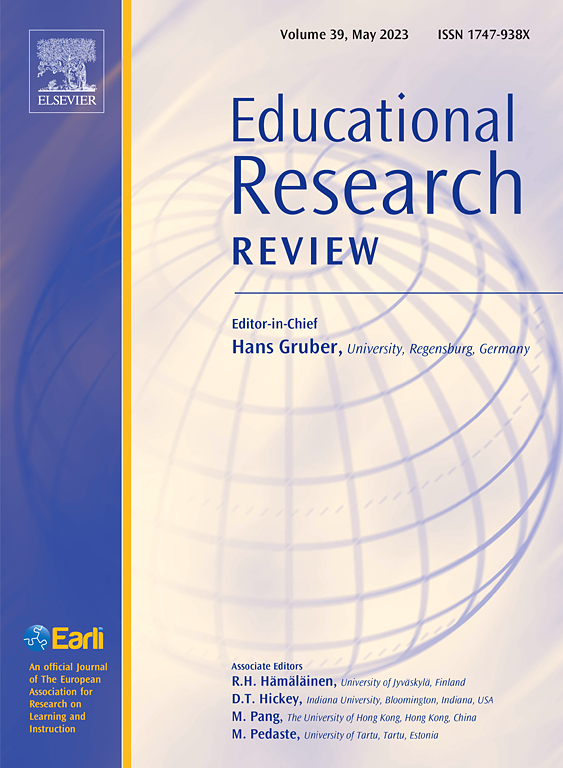The impact of artificial intelligence on students’ 4C skills: A meta-analysis
IF 10.6
1区 教育学
Q1 EDUCATION & EDUCATIONAL RESEARCH
引用次数: 0
Abstract
The widespread integration of artificial intelligence (AI) in education has highlighted its potential to enhance students' higher-order competencies, particularly the 4C skills (critical thinking, communication, collaboration, and creativity). However, the effectiveness of AI in fostering these skills remains debated, primarily due to inconsistent findings across studies. To address this research gap, this study employs the meta-analysis method, analyzing 39 experimental and quasi-experimental studies published in international journals between January 2010 and July 2024. The results reveal that: (1) AI has a moderately positive impact on students' 4C skills (the combined effect size = 0.624), while there is no significant difference in creativity, critical thinking, communication, and collaboration; (2) AI-based learning tools are most effective in enhancing the 4C skills of primary school students compared to other educational levels; (3) a mix of different technology types is more conducive to developing students' 4C skills than any single technology; (4) AI is most effective in fostering 4C skills when applied in adaptive systems and personalization; (5) smartphones, as AI learning devices, show significant potential in promoting 4C skills. These findings provide valuable insights for future research and practice aimed at leveraging AI tools to enhance students’ 4C skills, particularly by identifying key factors that maximize the effectiveness of AI in education.
人工智能对学生4C技能的影响:一项元分析
人工智能(AI)在教育中的广泛整合凸显了其提高学生高阶能力的潜力,特别是4C技能(批判性思维、沟通、协作和创造力)。然而,人工智能在培养这些技能方面的有效性仍存在争议,主要是由于研究结果不一致。为了弥补这一研究空白,本研究采用荟萃分析方法,对2010年1月至2024年7月在国际期刊上发表的39篇实验和准实验研究进行了分析。结果表明:(1)人工智能对学生的4C技能有中等正向影响(综合效应量= 0.624),而在创造力、批判性思维、沟通和协作方面没有显著差异;(2)与其他教育水平相比,基于人工智能的学习工具在提高小学生4C技能方面最有效;(3)不同技术类型的混合比任何单一技术更有利于培养学生的4C技能;(4)当人工智能应用于自适应系统和个性化时,它在培养4C技能方面最有效;(5)智能手机作为人工智能学习设备,在提升4C技能方面潜力巨大。这些发现为未来的研究和实践提供了宝贵的见解,旨在利用人工智能工具提高学生的4C技能,特别是通过确定最大限度地提高人工智能在教育中的有效性的关键因素。
本文章由计算机程序翻译,如有差异,请以英文原文为准。
求助全文
约1分钟内获得全文
求助全文
来源期刊

Educational Research Review
EDUCATION & EDUCATIONAL RESEARCH-
CiteScore
19.40
自引率
0.90%
发文量
53
审稿时长
57 days
期刊介绍:
Educational Research Review is an international journal catering to researchers and diverse agencies keen on reviewing studies and theoretical papers in education at any level. The journal welcomes high-quality articles that address educational research problems through a review approach, encompassing thematic or methodological reviews and meta-analyses. With an inclusive scope, the journal does not limit itself to any specific age range and invites articles across various settings where learning and education take place, such as schools, corporate training, and both formal and informal educational environments.
 求助内容:
求助内容: 应助结果提醒方式:
应助结果提醒方式:


